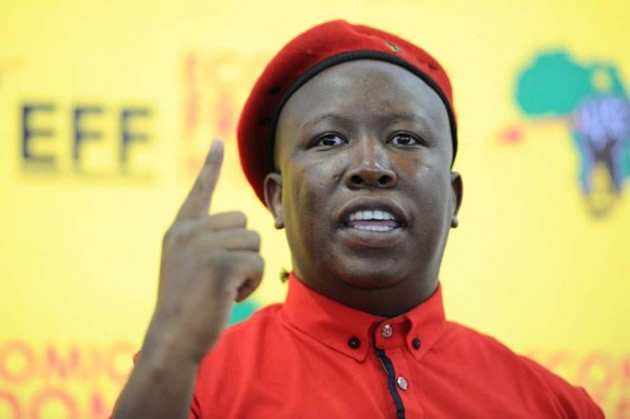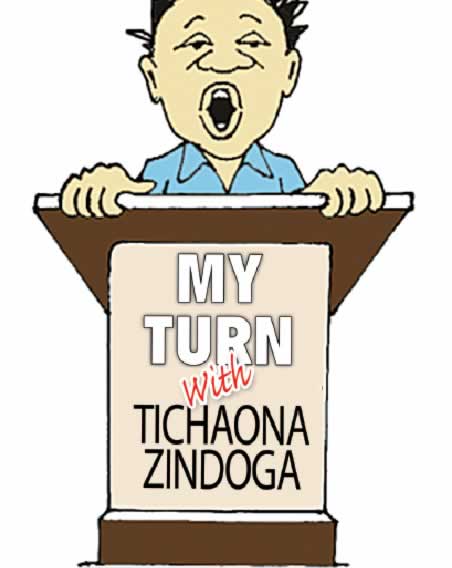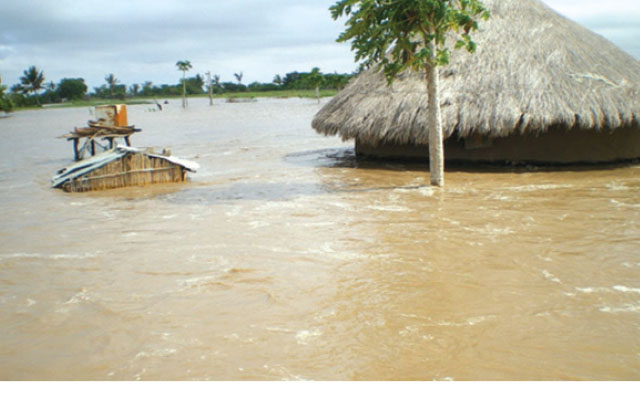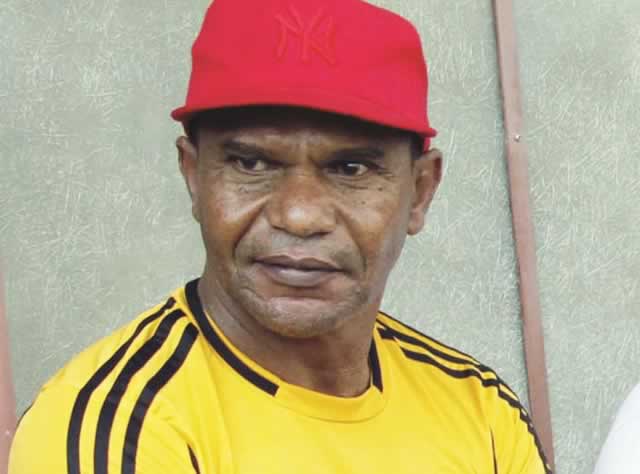SA, opposition’s ‘shadow’ foreign policy

 In the past few months, South African opposition parties, at least the main ones, namely Democratic Alliance and Economic Freedom Fighters, have been making pronouncements on Zimbabwe that Government has not received quite graciously.
In the past few months, South African opposition parties, at least the main ones, namely Democratic Alliance and Economic Freedom Fighters, have been making pronouncements on Zimbabwe that Government has not received quite graciously.
EFF and its leader Julius Sello Malema are making these utterances with increasing regularity with a specific call on President Mugabe to step down ostensibly to protect his legacy.
True to the fashion of the EFF, the calls have been impudent, disrespectful and provocative.
And the more the guys realise that they have annoyed someone, they like to rub it in.
It’s their nature, which is borne out of a mixture of political immaturity and contrived radicalism.
We have seen it play out all too often, especially in Parliament here when the EFF has been disruptive, all in an attempt to embarrass President Jacob Zuma.
You cannot say they are trying to make a point.
They made it a long time ago.
Now these disruptions and histrionics are being seen by neutrals to have outlived their efficacy both as a strategy and political statements.
But Malema doesn’t know when to stop apparently.

Julius Malema
Or perhaps he does.
He wants to precipitate crises.
He thrives on it.
He is like the proverbial pig that you can’t wrestle in the mud.
We know what happens: you both get dirty and the pig will love it.
Many watchers have warned not to engage Malema in this sport of his, but it is also very tempting to engage him.
Quite ironically.
When it comes to Zimbabwe, the Democratic Alliance, a largely white organisation fronting the interests of minority white capitalists and often racist elements with a seasoning of black faces, it’s stance is predictable.
It is the DA of the likes of Tony Leon and Hellen Zille.
Now it has a black face in the form of a Mmusi Maimane, a chap who tries rather too hard to be the Barack Obama of (South) Africa.
He has a white wife.
And when President Mugabe of Zimbabwe marked his birthday recently, Maimane was obliged to make a statement, which was as ridiculous as in general conformity with DA’s well worn attitude towards Zimbabwe and its leader.
“He must step aside so that we can enter into a post-liberation era. He has ruled for too long and must step aside,” Maimane pontificated.

Mmusi Maimane
He added, “We must stand for democracy. The Zimbabweans won the elections, the opposition won the elections and we (South Africa) negotiated a government of national unity, undermining the will of the people.”
He opined that SADC must have done a Yahya Jammeh to President Mugabe, that is using military means to force the Zimbabwean leader out.
And oh, he is talking about 2008, by the way! And that is, for those in the know, where he loses it in terms of the dynamics of 2008, the complexity and even untenability of the military option.
In a word, Zimbabwe is not a Gambia nor President Mugabe a Jammeh and even in 2008 had not lost credibility with the people, albeit narrowly losing the first round of the presidential poll, which duly necessitated a runoff according to the laws of the land which parties had agreed to.
There is a lot of foolishness around trying to hold the first round as conclusive — and the winner as duly elected.
It is self-serving and dishonest.
And most of all, when people talk about 2008 as though there were no elections in 2013, it is the height of hypocrisy and depth of delusion.
It is simply stupid.
Yet we understand it is not too convenient and it’s something that the opposition MDC-T, it’s leader Morgan TSVANGIRAI, his supporters, including the likes of Maimane, hold on to.
Yet common wisdom will tell us that 2008 is now a lot of years of water under the bridge. And it will not come back 10 years later. As we will see.
In all this, it is critical for us to examine what constitutes the shadow foreign policies of these opposition parties.
The parties have been trying to sell these policies over the years.
The EFF is interesting in ways we shall explore and comment on briefly.
According to one of its policy documents, “The EFF sees itself as a movement for continental and global economic liberation and, where needs be, political liberation of the most oppressed. It is why the EFF is characterised as a mass-based, associate and relate constantly with the grassroots and community movements, socialist, anti-imperialist and has adopted an internationalist outlook.
“The solutions we (EFF) represent is a coherent ideological tradition and draw inspiration from developments around the world on what has been done to advance the development and betterment of peoples’ lives in the aftermath of the defeat of colonialism and against imperialism.” It says the party considers that radical progressive internationalism must be centred on a very transformational approach in multilateralism, social justice and the transformation of global political and economic structures in order to transform the current system of global governance in an equitable and just manner.
That is part of a heavy document that touches on many aspects of foreign policy. There are other salient points to be made.
According to the party, “The EFF will pioneer a continental fight on the current neoliberal outlook by ensuring the radicalisation of the African Union to uphold anti-imperialism, respect for sovereignty and multilaterally approved interventions as opposed to interference into the affairs of sovereign and democratically elected countries.
“EFF will strengthen political, social and economic relations with all progressive African countries for the advancement of freedom, peace, security and development. EFF will also pursue greater economic integration within the African continent starting with the pursuit of a SADC-wide customs union.”
EFF sees itself “leading the continent and world’s progressive movement (in) building strong generational consciousness and urgency towards the much-anticipated economic freedom for the continent.”
A brief analysis is required.
Many readers, and those who have followed the fledgling party, may have remarked on the force of the ideas that the party puts through.
However, there is a clear and observable trajectory indicating that the EFF has become useful as a counter-revolutionary movement for the specific reason of undermining the ANC as the legitimate Leftist organisation.
There was a time the EFF was being dubbed the Left of Left.
More conscientious now people view it as a false Left.
This is without reason.
There have been indications that Malema has been receiving monies from western organisations such as George Soros’ Open Society Foundation.
Soros is known to sponsor counter-revolutionary “false Left” organisations across the world, in particular Eastern Europe.
It can be seen that Malema is now heading the growth of the false Left movement to eat into the traditional revolutionary movements and guess what, Zimbabwe is just a geographic and political first stop.
We have heard how he has been saying that he is prepared to work with young cadres in Zanu-PF, which essentially means he aims to divide the ruling party.
The obvious reason for that is that it will bring down the party on the basis of counter-revolutionary manoeuvre.
It is also critical to note that EFF is pretty muted on major political questions of the continent as one would expect.
It will be interesting continuing to watch the boys in red.
Then we come to DA.
These are unapologetically Western lackeys.
In fact, because of the majority white element in the party, it would rather be part of the West and has thus sought to advance Western values and interests as the basis of its foreign policy.
It criticises ANC policy “failures” and in particular its pursuit of a multi-polar world and also friendship with the likes of Russia and China calling them “dubious geopolitical” allies.
A significant document on DA’s foreign policy is a paper that Maimane presented to the South African Institute of International Affairs in Cape Town in 2015. He said the party’s “foreign policy is to serve and promote our own national interest”.
“And as things stand, Europe is still our biggest trading partner. It is simply not in our national interest to turn our back on the West, as we seem intent on doing. Under the DA, our foreign policy will cement our place in Africa as a driver of regional growth and job creation…
“South Africa’s foreign policy under the DA will be bold, principled and value-driven. It will place human rights at the front and centre, but it will also allow us to vigorously pursue our domestic imperatives.”
The thrust is not hard to follow.
The most important point to be made, though, is that both these main opposition parties are aware that the West seeks to use South Africa as a launchpad to assault and influence Zimbabwe, something the ANC has refused to do.
And they are increasingly showing willingness to please the West as part of their fight against the ruling party.







Comments